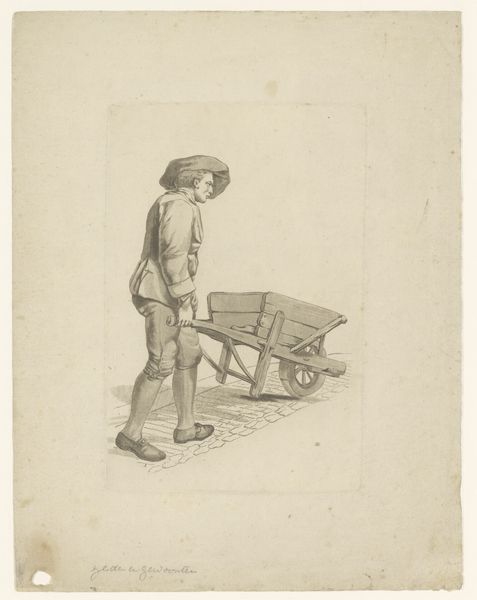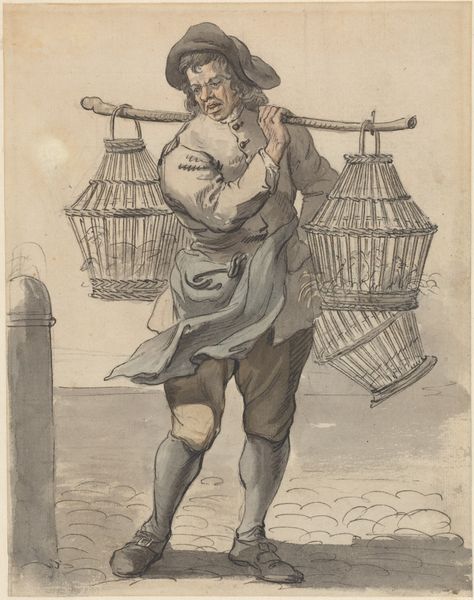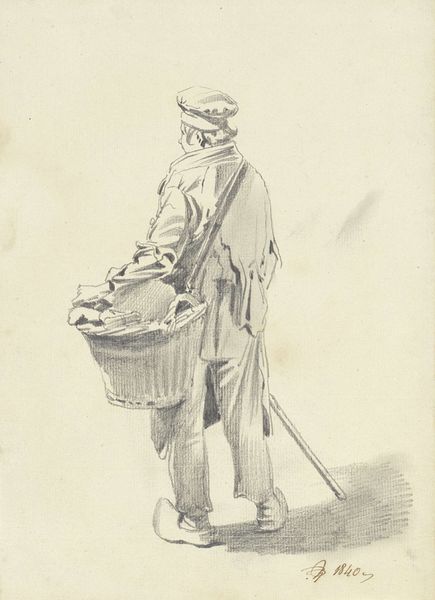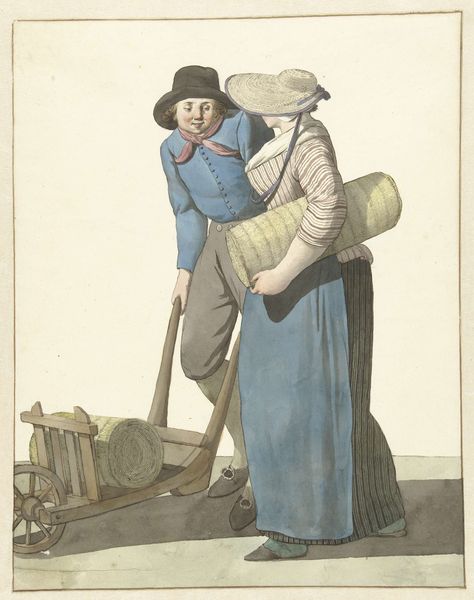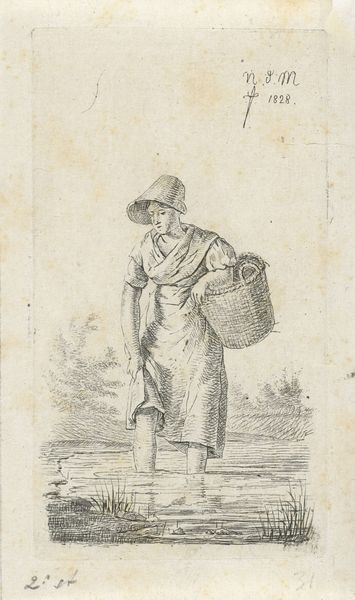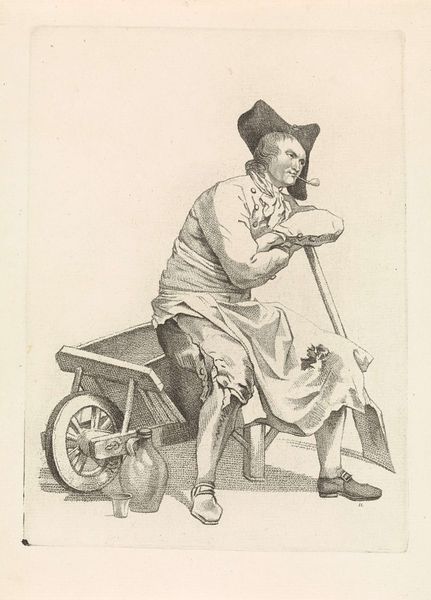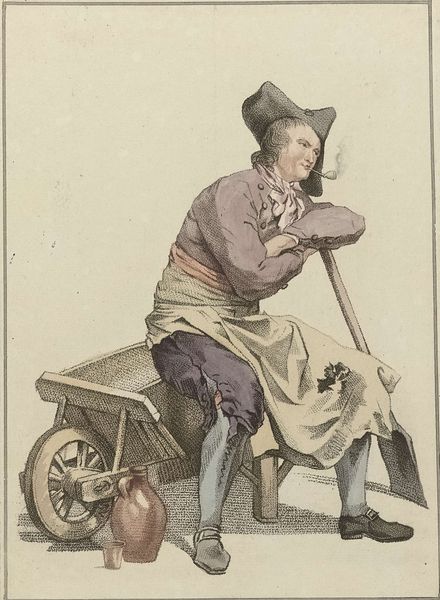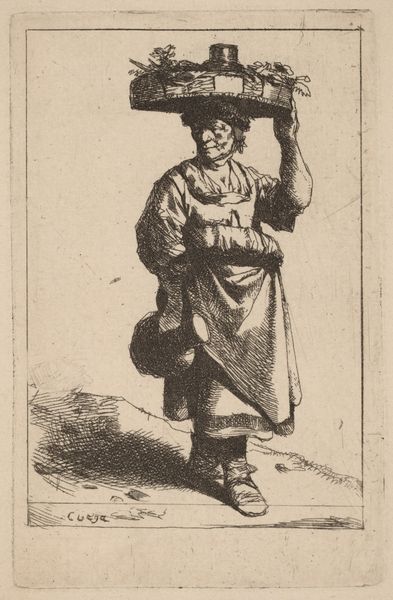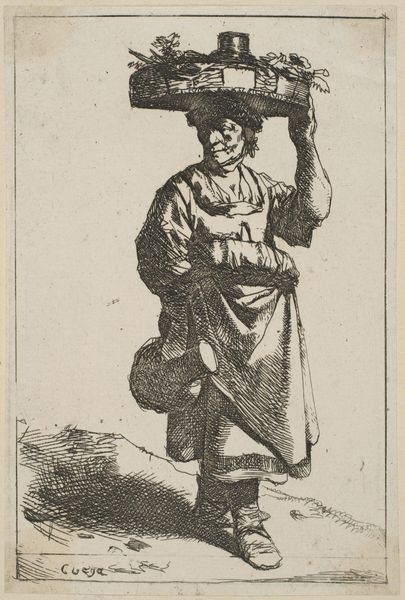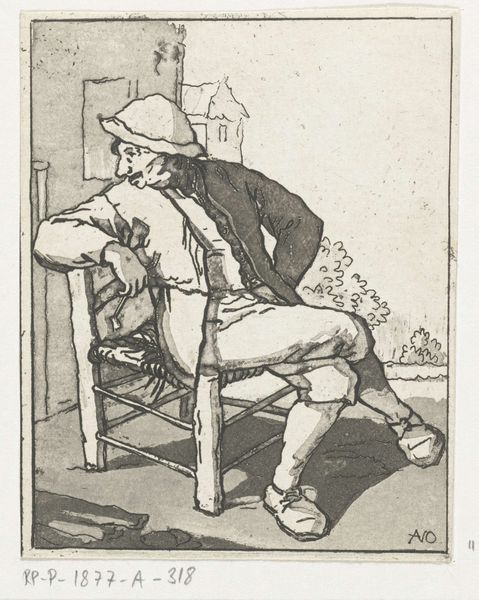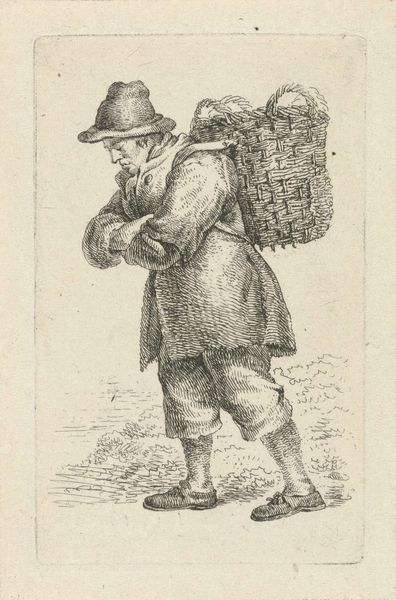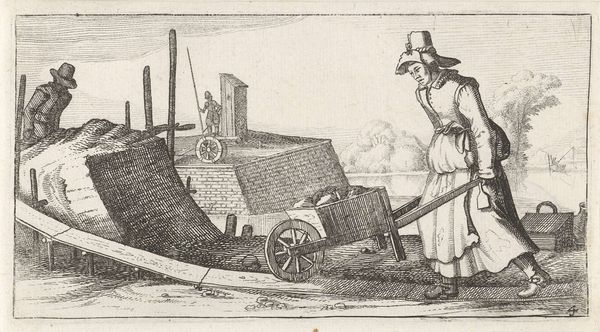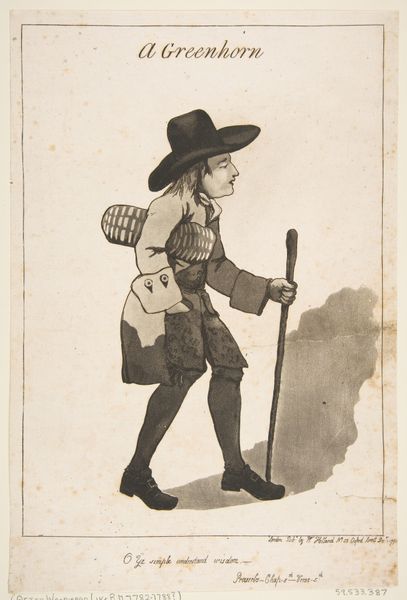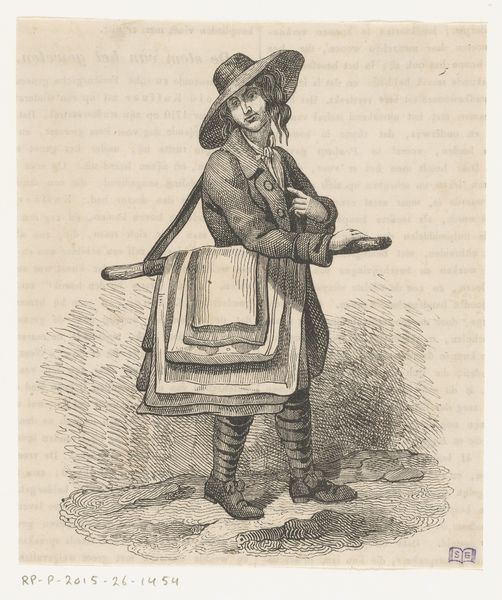
#
imaginative character sketch
#
light pencil work
#
photo restoration
#
pencil sketch
#
caricature
#
cartoon sketch
#
personal sketchbook
#
19th century
#
portrait drawing
#
cartoon carciture
Dimensions: height 202 mm, width 132 mm
Copyright: Rijks Museum: Open Domain
Editor: So, we're looking at "Man met kruiwagen"—"Man with Wheelbarrow"— by Mathias de Sallieth, dating somewhere between 1772 and 1833. It's a pencil drawing, and what strikes me most is how detailed the wheelbarrow itself is compared to the somewhat caricatured man. What jumps out at you? Curator: The tension between the rough sketch of the man and the relatively precise rendering of the wheelbarrow speaks volumes about labor and class during that period. We see here the tools of production arguably given more "attention" than the human driving the production itself. Notice the subtle detail in the wood grain and construction. Who built this wheelbarrow, and under what conditions was it sold to or provided for the working man? Editor: That's a perspective I hadn't considered. So, you're suggesting the artist is making a commentary on the value, or lack thereof, placed on laborers versus their tools? Curator: Precisely. The sketch prioritizes the *means* of labor over the person doing the work. The medium, pencil on paper, is relatively inexpensive, hinting perhaps at art being more accessible, more 'common,' and potentially reflecting the subject matter. Do you notice how the rendering emphasizes the physicality of the wheelbarrow: it is very detailed to look like the real thing? This suggests where value lies in the image. How does it challenge traditional fine art subject matter? Editor: I see what you mean! Traditional portraits often celebrated the wealthy or powerful. This seems to democratize art by focusing on the everyday experience and, honestly, the materials that defined that experience. Curator: Exactly. It prompts us to consider not just the image, but the entire system of production that makes both the wheelbarrow *and* the artwork possible. Editor: That's fascinating. I’ll definitely look at other pieces through this lens of materials and their implications. Curator: Indeed, recognizing the significance of artistic creation and labor transforms the way we view art!
Comments
No comments
Be the first to comment and join the conversation on the ultimate creative platform.
